17 Nov2020
By Deen Lango
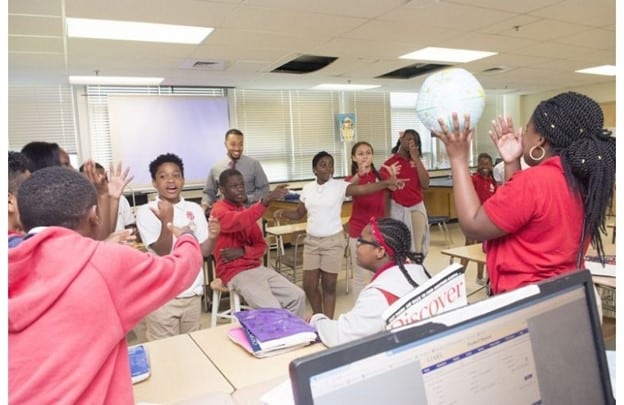
This article originally appeared in the USBE Information Technology magazine and is reprinted with permission.
Although minorities make up more than half of the student population in public schools, people of color make up about 20 percent of teachers. More than 70 percent of the total number of teachers are female. With support from the Education Writers Association, Chandra Thomas Whitfield took a close look at the shortage of Black male teachers in 2019. Nationwide, Whitfield found that only 2 percent of teachers are Black men.
Eleven months after Whitfield’s report, Alabama A&M University launched its Males for Alabama Education initiative to recruit Black male students who have an interest in teaching.
In October 2020, the Males for Alabama Education (M.AL.E.) Initiative announced that the scholarship program is accepting applications again.
Coordinated by the College of Education, Humanities and Behavioral Sciences and its Department of Teacher Education and Leadership, the M.AL.E. Initiative aims to:
16 Nov2020
By Jacqueline E. King, Ph.D.
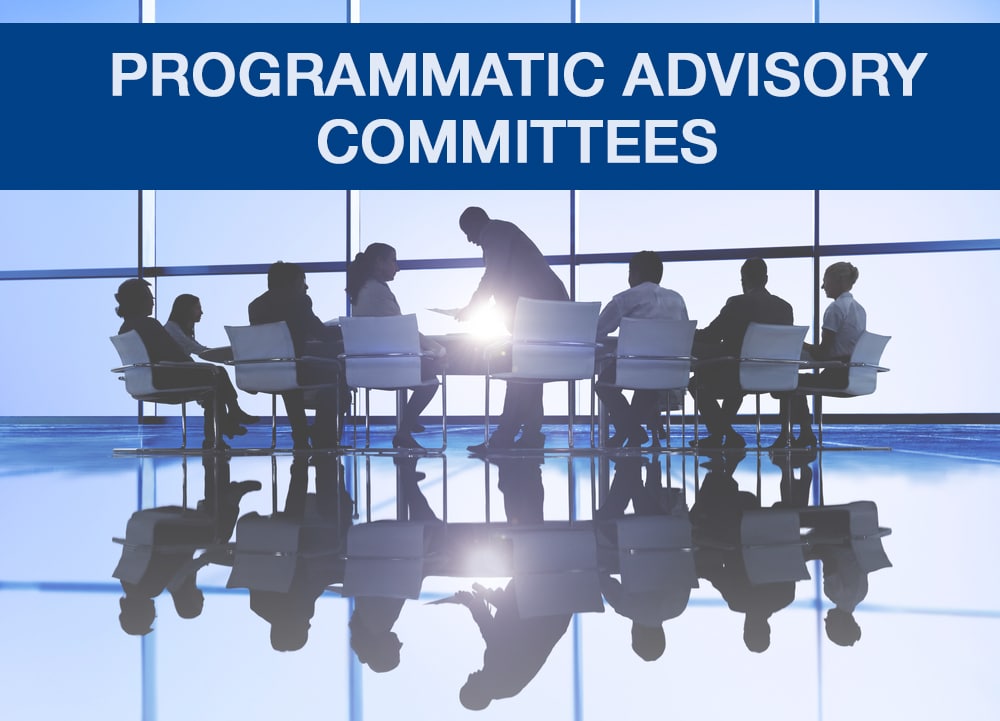
At its September meeting, the AACTE Board of Directors appointed new members to the programmatic advisory committees, including two new committees on Educator Diversity and the Holmes Program. Congratulations to these AACTE members, who will assume these positions on March 1, 2021, and a special thank you to everyone who submitted a nomination for these important volunteer leadership roles.
02 Nov2020
By JTE Insider
This podcast interview features insights from the article “Education Policy and Black Teachers: Perspectives on Race, Policy, and Teacher Diversity” by Terrenda White, Brian Woodward, DaVonna Graham, H. Richard Milner, and Tyrone C. Howard. The article is published in the September/October 2020 of the Journal of Teacher Education. AACTE members have free access to the articles in the JTE online archives—log in with your AACTE profile.
02 Nov2020
By Katrina Norfleet
The University of Michigan’s TeachingWorks is offering a series of free virtual mini-courses for English language arts teacher educators as part of its goal is to create a system for teacher preparation and establish support that will produce skillful beginning teachers who disrupt inequity.
The mini-courses will help build an understanding of critical content in ELA and develop practice-based approaches for teaching that content to novice teachers. This series will support ELA teacher educators to develop K-12 instruction and teacher education that fills immediate needs for children and contributes to building an education that dismantles injustice instead of perpetuating it.
The next course available for registration takes place on December 4, 2020:
02 Nov2020
By Matthew Wales

Themed Leadership During Difficult Times, AACTE’s first session of the 2020 Leadership Academy Series, held on October 14, explored how three institutions have risen to the challenge and taken strides to make lasting policy and programmatic changes related to diversity, equity, and inclusion. To continue the discussion, AACTE has provided panelist Lisa Norton, dean of the College of Education & Health Sciences at Touro University, California and one of the featured panelists, with some additional questions from session attendees. Here is what she had to say:
The Graduate School of Education at Touro University, California recently held a series of informative and courageous conversations regarding what it means for education to live diversity in 2020 and beyond. Can you share some of the insights related to accessibility for all PK-12 students in a remote learning environment?
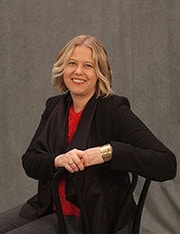 Our current Academic College Instructional Designer and Graduate School of Education faculty member, Dr. Michael Barbour, is internationally known for work on PK-12 remote learning and accessibility. We are lucky to have him to help both our own campus and the local school districts with information related to creating an inclusive online environment. We conducted a webinar series entitled Diversity Now, in which we addressed this and many other topics. We are now in discussions to help the school district with additional support for families. This support includes tutoring and mentoring children in two of the schools and possibly partnering on a large-scale grant effort through the state.
Our current Academic College Instructional Designer and Graduate School of Education faculty member, Dr. Michael Barbour, is internationally known for work on PK-12 remote learning and accessibility. We are lucky to have him to help both our own campus and the local school districts with information related to creating an inclusive online environment. We conducted a webinar series entitled Diversity Now, in which we addressed this and many other topics. We are now in discussions to help the school district with additional support for families. This support includes tutoring and mentoring children in two of the schools and possibly partnering on a large-scale grant effort through the state.
02 Nov2020
By AACTE
On behalf of the Board of Directors of the American Association of Colleges for Teacher Education (AACTE), President and CEO Lynn M. Gangone issued the following statement today urging educators to resist the Trump administration’s attack on critical race theory and other anti-racism work in education:
“In its June 4 statement, the AACTE Board of Directors called educators to take courageous action on race matters in America to address not only recent racial injustices across the nation but also structural racism that has deep, historic roots in our society. Critical race theory represents the scholarly work of educators who provide research evidence and expertise on how the legacy of slavery and inequality in America has unequivocally influenced our American way of life, including our system of education, and on effective ways to dismantle structural racism in American society. It has long been the focus of scholars across many disciplines, which has contributed to the great strides institutions have made in advancing human and civil rights for all Americans.
Banning federal funds to be used for professional development that addresses topics like white privilege, implicit bias, and structural racism, which are examined within critical race theory, is a denial of the historic realities of our country, and is an assault on the strategic gains institutions of higher education and educator preparation programs have made to enlighten students and affect change that promotes racial and social justice for all. Educators must resist any setbacks to the many years of research and activism scholars have made to progress our nation into a society that values the lives of all human beings.
AACTE and its member institutions are committed to revolutionizing education by upholding high standards in the preparation of future teachers through inclusive curriculum and evidence-based instructional strategies, modeling, and advocacy that dismantle racial oppression. AACTE members are actively working to diversify the teaching profession, address the teacher shortage, redesign curricula that reflects the needs of 21st century learners, advocate for policies that fund student teachers of color, and build social justice partnerships for strengthening the education community—all in a concerted effort to advance diversity, equity, and inclusion in PK-20 education. Critical race theory is at the foundation of this vital work. AACTE calls on educators and the educator preparation community to stay the course and to actively support the work of critical race theorists and other anti-racism efforts for building a more racially just society.
###
AACTE: The Leading Voice on Educator Preparation
The American Association of Colleges for Teacher Education is a national alliance of educator preparation programs and partners dedicated to high-quality, evidence-based preparation that assures educators are profession-ready as they enter the classroom. The 700 member institutions include public and private colleges and universities in every state, the District of Columbia, the Virgin Islands and Guam. Through advocacy and capacity building, AACTE promotes innovation and effective practices that strengthen educator preparation. Learn more at aacte.org.
23 Oct2020
By Matthew Wales
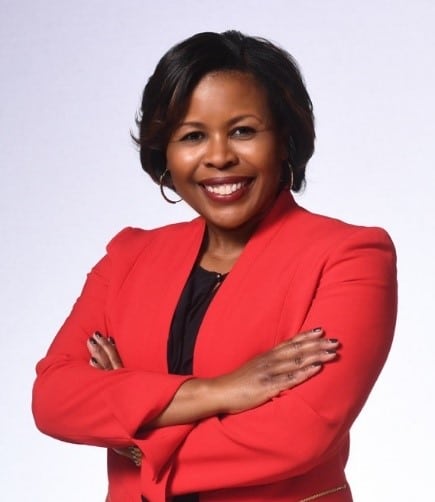 Every year, AACTE typically holds its Leadership Academy as an in-depth, face-to-face, hands-on training for those educators seeking to begin or enhance their roles in academic leadership. Given the current Covid-19 pandemic, AACTE wanted to bring a portion of that experience to its membership, and thus the 2020 Leadership Academy Series was created.
Every year, AACTE typically holds its Leadership Academy as an in-depth, face-to-face, hands-on training for those educators seeking to begin or enhance their roles in academic leadership. Given the current Covid-19 pandemic, AACTE wanted to bring a portion of that experience to its membership, and thus the 2020 Leadership Academy Series was created.
With the theme of Leadership During Difficult Times, the Leadership Academy Series explores topics that are more relevant than ever to our members. The first session of the series, held on October 14, explored how three institutions have risen to the challenge and taken strides to make lasting policy and programmatic changes related to diversity, equity, and inclusion.
Monika Williams Shealey, senior vice president for diversity, equity and inclusion at Rowan University, was one of three distinguished panelists. She recently took time to answer some additional questions from attendees. Here is what she had to say:
22 Oct2020
By Andre ChenFeng
“We are more than test scores.” That was the refrain I heard from my social sciences colleagues in the teachers’ lounge protesting our school’s focus on standardized tests. The middle school was located in a poverty-impacted community with over 95% of students of color. In 2009, I was finishing my fifth-year teaching and recall asking myself, “Why are the standardized tests such an evil thing? Don’t we need assessments to measure what the students are learning?” (ChenFeng, 2009).
One of the signature education policies in my early career was the No Child Left Behind (NCLB) Act of 2002. Teachers have different opinions of NCLB, but most educators and policy makers would agree that NCLB brought upon a culture of “over-testing and one size fits all mandates” (Duncan, 2015). During the 12 years I taught middle school math in Los Angeles, not once did I examine the intersection of white supremacy and education policy in my own classroom instruction. Overwhelmed by the high-stakes testing environment, and with a roster of 130 students, I was not aware of the impact of federal education policy on my teaching beliefs and instruction. In retrospect, I upheld color-evasive ideology and believed in a pedagogy that promoted the myth of meritocracy (Bonilla-Silva, 2017 as cited in Diem & Welton, 2020). In other words, I did not consider how race and racism shows up in the classroom or the ways I was complicit in perpetuating the false notion of pulling ourselves up by the bootstraps.
20 Oct2020
By Robin Chenoweth
The following article is an excerpt from Inspire Magazine and is reprinted with permission.
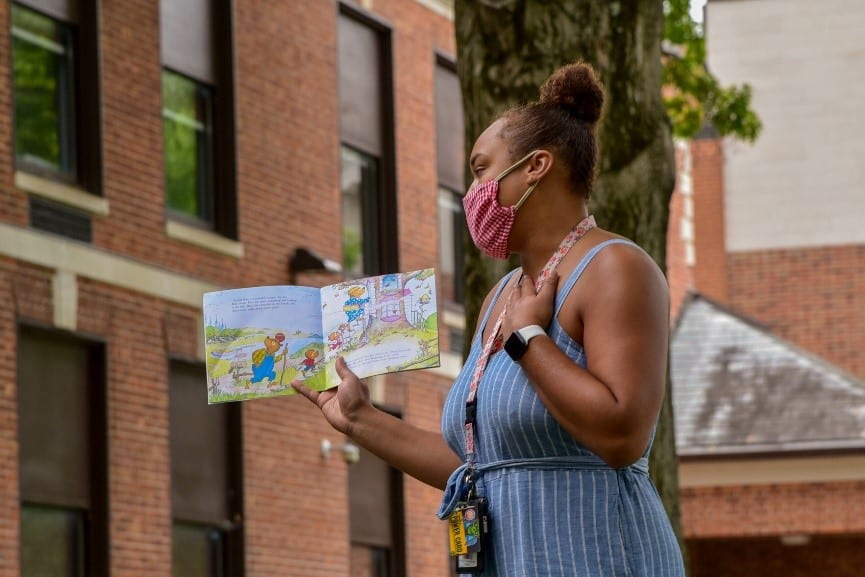 After schools shut down in March due to COVID-19, teacher Sarah Thornburg and her team tackled remote teaching with gusto.
After schools shut down in March due to COVID-19, teacher Sarah Thornburg and her team tackled remote teaching with gusto.
“We were like, ‘Let’s go.’ We found out, not only could we not teach the way that we wanted, but we shouldn’t,” the Columbus, Ohio, teacher said. “Everything had to slow down and focus not on content but on (students’) mental well-being.”
Some high-schoolers doubled work hours to pay bills. Some feared they would expose grandparents to the virus. Families lost businesses.
“That’s a burden that’s incredible for anybody to have, much less for a 15-year-old to deal with,” Thornburg said. “You can’t teach a child who’s completely freaking out about, ‘Are we going to lose our home?’ That was eye-opening.”
07 Oct2020
By Weade James
AACTE recently published an article in the Success in High Need Schools Journal to amplify promising practices for recruiting and retaining teacher candidates. In this article, titled “The Use of Networked Improvement Communities in Educator Preparation Programs to Improve Teacher Shortage and Diversity”, Jacqueline Rodriguez , AACTE vice president, research, policy, & advocacy, and I highlight the contributing factors to the teacher shortage and diversity crises in our nation.
These factors include but are not limited to the declining enrollment and degrees awarded in education, financial barriers to pursuing a teaching credential, and the lack of culturally-relevant strategies to attract and retain diverse candidates. Research show that these factors are more prevalent for minorities, thus contributing to the dismal representation of minority teachers in the profession compared to their White counterparts (80%).
02 Oct2020
By Jacqueline E. King, Ph.D.

To better understand and meet the needs of its members, AACTE is launching a survey on how educator preparation programs are impacted by and reacting to the twin crises of the pandemic and racial violence and inequity in the United States. This survey follows up on a similar effort last spring to capture how the pandemic was impacting members’ ability to prepare future educators.
The chief representative for each AACTE member college and university will be invited to complete the survey. The survey will be open October 7 through November 6. Results will be released in November. Deans, directors, and chairs are asked to be on the lookout for this invitation and to complete the survey at their earliest convenience. AACTE will use member responses to
- Determine the support members need
- Inform the public and policy makers about how the coronavirus and racial inequity crises are affecting educator preparation and how members are leading during these crises
- Share aggregated information to help you benchmark your experience against your peers.
For more information and resources on COVID-19 and educator preparation, please visit AACTE’s COVID-19 Resource Page.
29 Sep2020
By Katrina Norfleet
 The Patton College of Education at Ohio University has initiated an educational series with the goal of enhancing knowledge about racist and anti-racist behaviors among citizens of the university and global communities. The Black Live Matters Munch & Learn Series features educators and industry leaders from diverse backgrounds who share the same passion for improving the culture that threatens U.S. communities and nation.
The Patton College of Education at Ohio University has initiated an educational series with the goal of enhancing knowledge about racist and anti-racist behaviors among citizens of the university and global communities. The Black Live Matters Munch & Learn Series features educators and industry leaders from diverse backgrounds who share the same passion for improving the culture that threatens U.S. communities and nation.
To date, three panel discussion have taken place:
Advocacy & Allyship: Every Day, Not Just When it is Trending
This session, which challenges participants to recognize and speak up against racism, features the following speakers:
- Brandi Baker, co-founder, Athens Parents for Racial Equality
- Tyrone Carr, director, Alumni Diversity Initiatives/Racial Equity Coalition of Athens
- Winsome Chunnu, director, Diversity and Inclusion
- Sarah Garlington, assistant professor, Department of Social Work/Showing Up for Racial Justice (SURJ)
29 Sep2020
By Katrina Norfleet
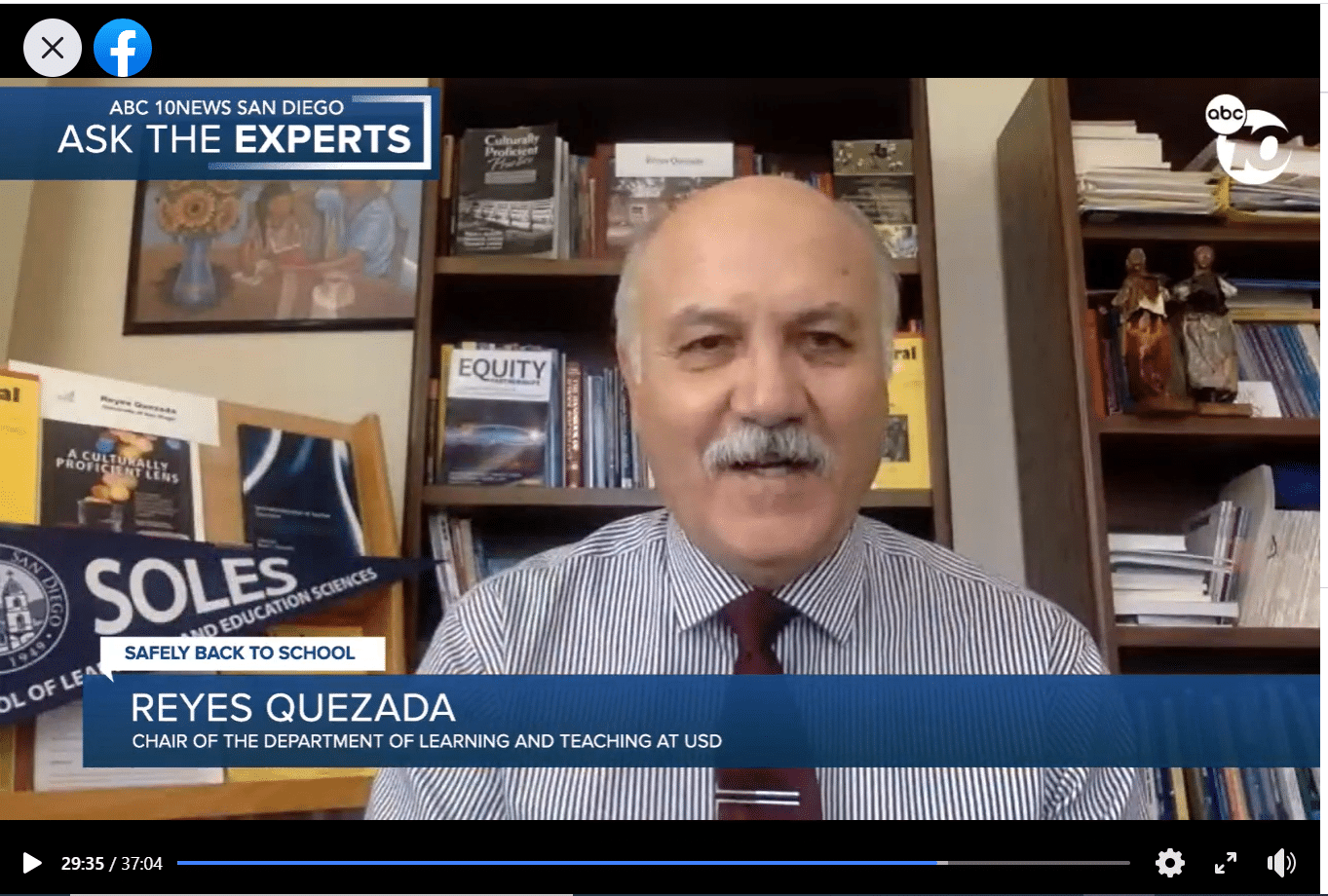
As many parents have questions about how to navigate the current school year with their children at home, ABC 10News anchor Lindsey Peña offered them an opportunity to talk with Reyes Quezada, chair of the Department of Learning and Teaching from University of San Diego USD, about their concerns. Reyes fields questions about distance learning, early childhood education, and bilingual education during the segment.
His advice includes tips that families can use to replicate what’s happening in schools to support their students at home. During the interactive session, Reyes also emphasizes the different ways teachers can communicate to meet the needs of the students during remote learning, including socio-emotional learning.
Watch the full interview on ABC10News Facebook page.
25 Sep2020
By Jerrica Thurman

Learn from top leaders in the field (and from your peers!) during AACTE’s virtual 2020 Leadership Academy Series, occurring in three sessions on October 14, October 27 and November 10. Engage in interactive discussions and strategic planning around issues facing your institutions during these challenging and unprecedented times.
In the first installment of the series on October 14, attendees will participate in a town hall style session, in which practices from three institutions will be shared. Entitled “It’s Time to Get Real: Deliberate Action in Diversity, Equity, and Inclusion,” participants will hear how these institutions have risen to the challenge and taken strides to make lasting change in their programs and policies. Each will contextualize the work they have undertaken; share successes, challenges, and lessons learned; and provide suggestions for how leaders in the ed prep community can engage in furthering this work.
23 Sep2020
By Weade James
The Ohio State University’s College of Education and Human Ecology will host a webinar series this fall on anti-racism in educational research for its alumni and the general public. This series, titled “Unapologetic Educational Research: Addressing Anti-Blackness, Racism and White Supremacy,” will examine how to conduct research on race that moves beyond the standardized approach to educational research. Participants will learn strategies to ensure that their research practices are equitable to inform findings that do not perpetuate the marginalization of people of color.
The series will launch on October 1, and feature sessions on a variety of topics, including engaging “diversity” in qualitative research, interrogating whiteness, and conducting research with indigenous methodologies. The webinar will feature guest alumni: D-L Stewart of Colorado State University, Rich Milner of Vanderbilt University, and April Peters-Hawkins of the University of Houston.
Learn more about the events and how to register.










 Our current Academic College Instructional Designer and Graduate School of Education faculty member, Dr. Michael Barbour, is internationally known for work on PK-12 remote learning and accessibility. We are lucky to have him to help both our own campus and the local school districts with information related to creating an inclusive online environment. We conducted a
Our current Academic College Instructional Designer and Graduate School of Education faculty member, Dr. Michael Barbour, is internationally known for work on PK-12 remote learning and accessibility. We are lucky to have him to help both our own campus and the local school districts with information related to creating an inclusive online environment. We conducted a  Every year, AACTE typically holds its Leadership Academy as an in-depth, face-to-face, hands-on training for those educators seeking to begin or enhance their roles in academic leadership. Given the current Covid-19 pandemic, AACTE wanted to bring a portion of that experience to its membership, and thus the
Every year, AACTE typically holds its Leadership Academy as an in-depth, face-to-face, hands-on training for those educators seeking to begin or enhance their roles in academic leadership. Given the current Covid-19 pandemic, AACTE wanted to bring a portion of that experience to its membership, and thus the  After schools shut down in March due to COVID-19, teacher Sarah Thornburg and her team tackled remote teaching with gusto.
After schools shut down in March due to COVID-19, teacher Sarah Thornburg and her team tackled remote teaching with gusto.
 The Patton College of Education at Ohio University has initiated an educational series with the goal of enhancing knowledge about racist and anti-racist behaviors among citizens of the university and global communities. The Black Live Matters Munch & Learn Series features educators and industry leaders from diverse backgrounds who share the same passion for improving the culture that threatens U.S. communities and nation.
The Patton College of Education at Ohio University has initiated an educational series with the goal of enhancing knowledge about racist and anti-racist behaviors among citizens of the university and global communities. The Black Live Matters Munch & Learn Series features educators and industry leaders from diverse backgrounds who share the same passion for improving the culture that threatens U.S. communities and nation.
